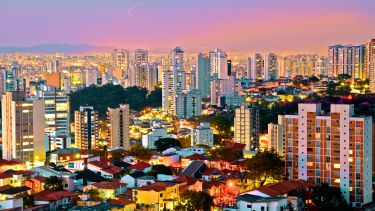A Senior Research Fellow for the Urban Institute research centre, Silver’s work focuses on advancing new ideas for global urban studies that bring together key issues on cities, politics, ecology through an emphasis on infrastructure.
The European Research Council (ERC) funding, worth in total €677 million, will help early-career scientists and scholars – including Silver – to build their own teams and conduct pioneering research across all disciplines. The grants are part of the EU’s Research and Innovation programme, Horizon 2020.
Silver said: ‘I am honoured and humbled to receive this ERC funding to investigate the global phenomena of corridors. Being part of an amazingly vibrant and supportive Faculty has helped me to develop as a scholar, and has been vital to the thinking behind this project.
‘The award will enable me to develop an ambitious program of research with a team of post-doctoral researchers, a range of collaborating institutions and offer chances for different forms of academic and public participation as we seek to generate important new knowledge.’
The funding will be used to develop Silver’s project, GlobalCORRIDOR: Urbanisation, everyday life and techno-social differentiation, which proposes the first comprehensive social science study of a new global, urban geography of Corridor Urbanisation.
‘Our main concern is around the unknown consequences that contemporary urbanisation and new infrastructural geographies will have on urban inequality’, Silver said. ‘We know that an estimated 6.7 billion people will reside in urban regions by 2050 and that these people will often be living in highly unequal conditions. Infrastructure is fundamental to tackling global challenges in poverty reduction and sustainable development.’
Silver’s research proposes a focus on the large-scale infrastructure projects known as corridors worth tens of billions of Euros of investment and that cut across cities and regions as the world economy is being restructured.
‘Corridors move people, goods and information through trade, transportation and logistics routes in addition to urban enclaves, as the concentrated spaces where these networks come together,’ he said. ‘They therefore become critical sites for a range of different and sometimes competing priorities across different scales, sectors and populations.’
Corridors offer the potential to support economic development in urban regions through new relations and connections, for instance between East African cities and the Chinese or South Asian economies. But the deployment of these networks from port expansions to new train lines or luxury skyscraper enclaves can also have an adverse effect on communities: displacement and violence, unequal access to technologies, a shift from public to private governance of spaces.
‘A key question we will be returning to again and again is what kind of unequal impacts are corridor investments having on people living in cities and are there alternatives to these projects that might help better address urban inequality and sustainability?’

